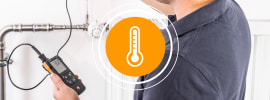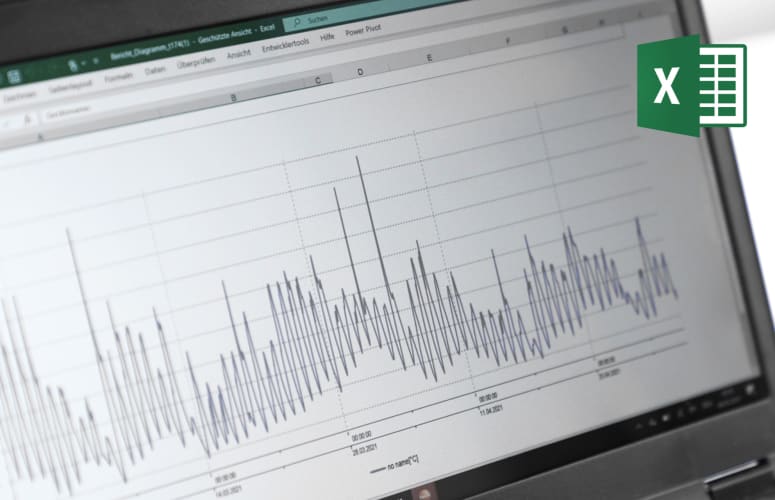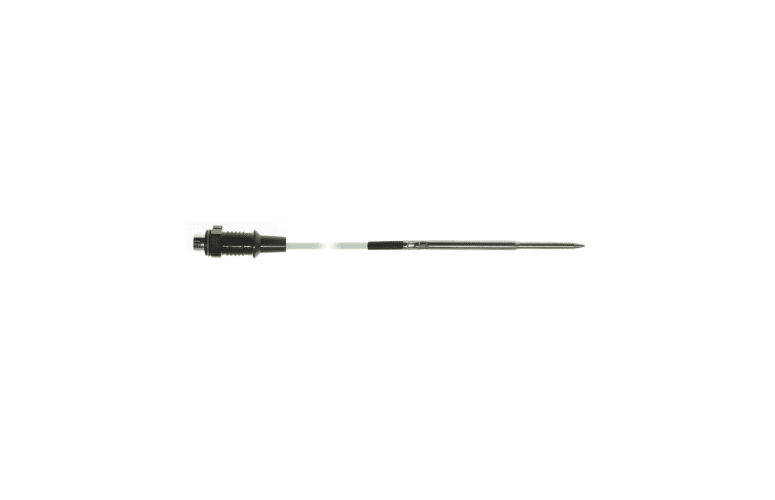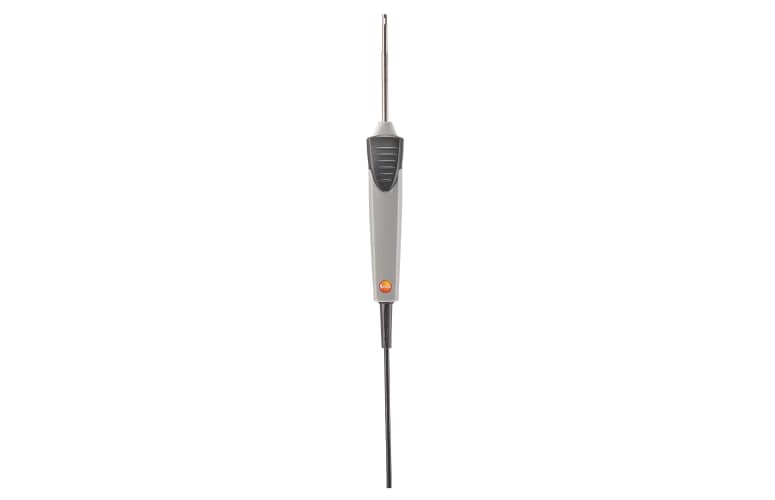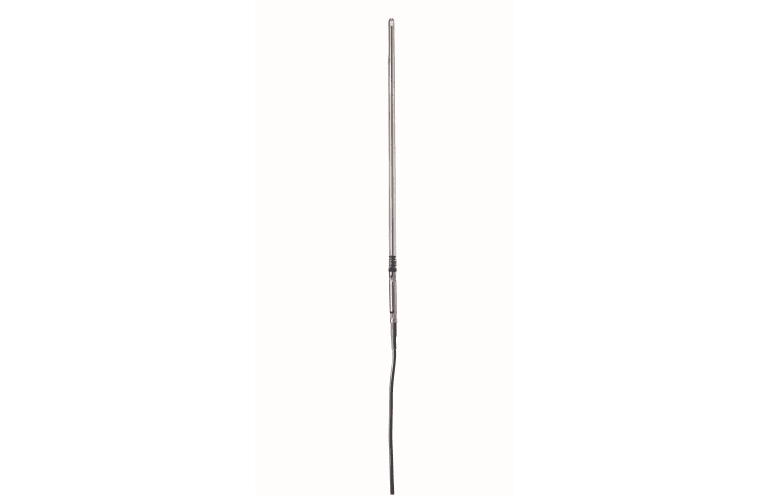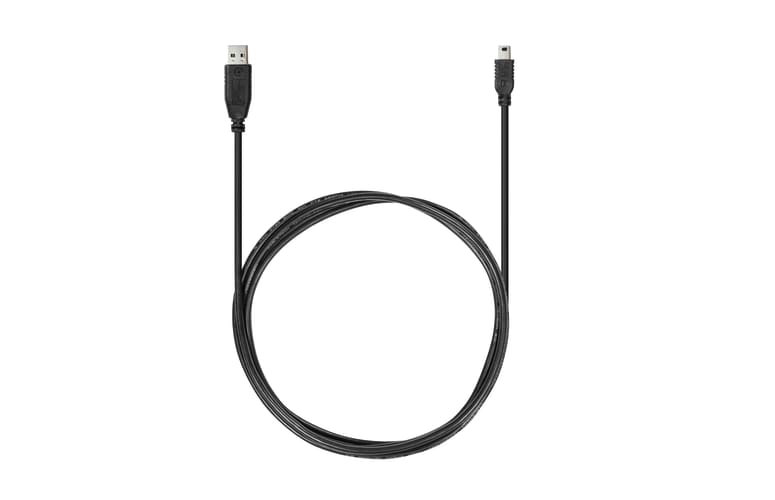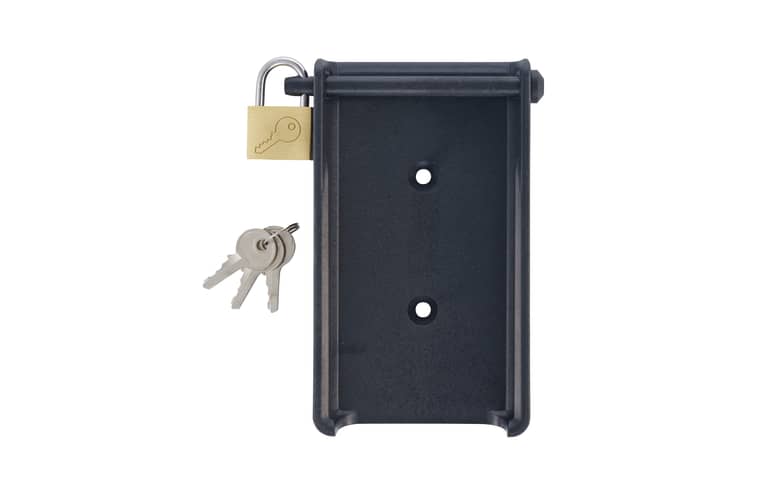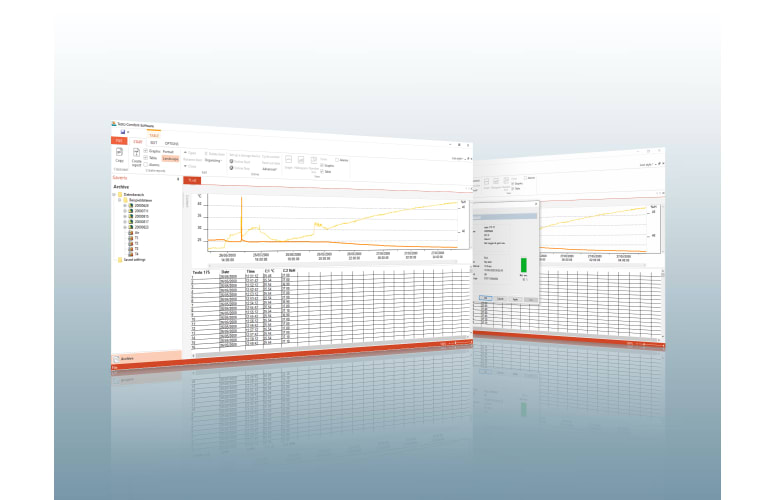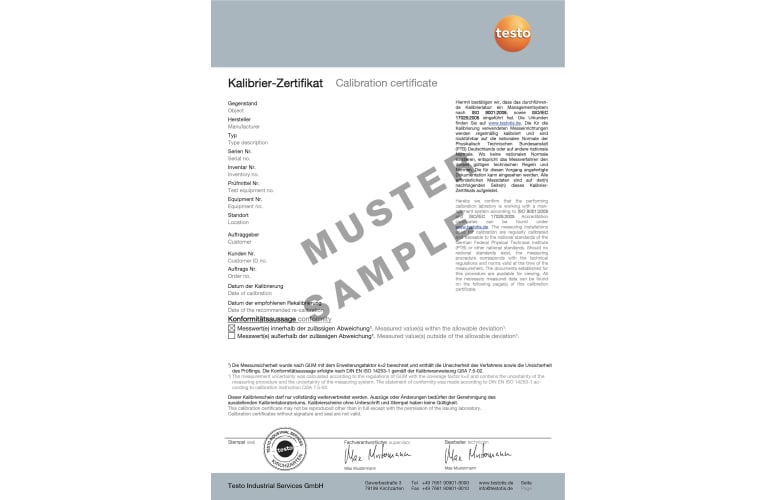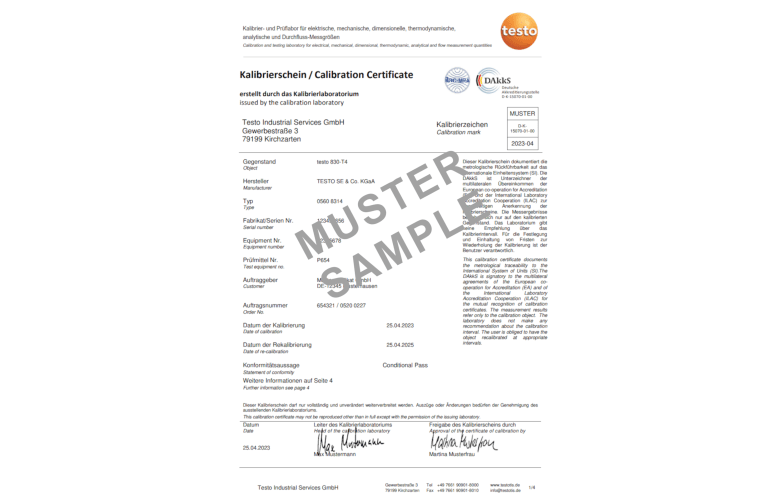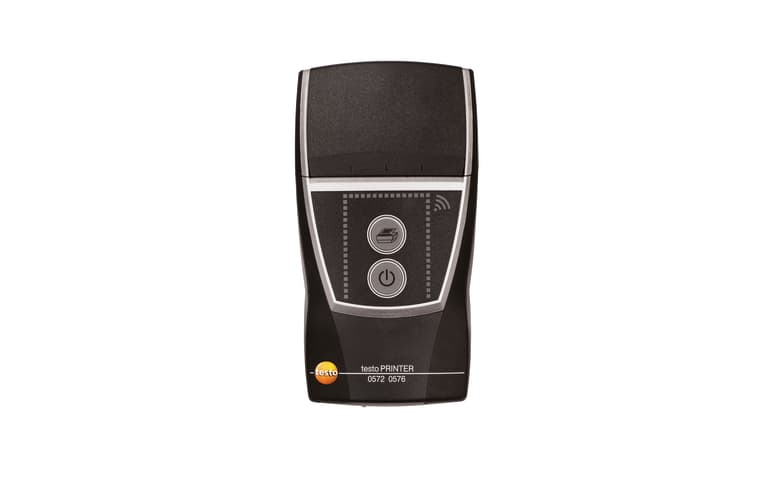The testo 176 T2 temperature logger is particularly suitable for reliable temperature monitoring on two channels. The data logger can accommodate two Pt100 probes of your choice, which you can order from our probes range. It is therefore possible to safely store temperature values from different measuring locations and, if required, compare them on site on the logger display.
You can carry out temperature monitoring over a longer period of time (eliminating the need for the data logger to be read out overly frequently). The testo 176 T2 temperature logger can store up to 2 million readings. Its battery life of up to 8 years also makes it practical for long-term temperature monitoring.
Technical features and practical benefits
The logger display offers you an overview of the current readings, limit values set and limit value violations, minimum and maximum values and also the remaining battery life. Thus, there is no need to read the data logger separately on your PC in order to quickly check it.
Data security is our top priority: you can rest assured that the measurement data stored in the temperature logger will not be lost. Data is not lost, even when the logger's battery is spent or while you are changing it.
The temperature logger is suitable for use in the food industry: it is certified to EN 12830 (tested by the ATP test station at TÜV Süd) and is HACCP-compliant. In compliance with protection class IP 65, the data logger is protected against water jets and can remain at the measuring location while cleaning is carried out there.
Possible areas of application for the temperature logger
- Temperature monitoring and documentation in storage facilities
- Temperature monitoring and documentation in deep-freeze storage areas, for example for foodstuffs
- Temperature monitoring and documentation in cold storage areas or in refrigerators, for example in pharmaceutical refrigerators
- Temperature logger as a reference for calibrating another temperature logger
Programming and analysis of the data logger
Programming and reading the data logger, as well as the analysis of measurement data, requires the use of a software package. Three different software versions are available:
- ComSoft Basic software – available as a free download – is ideal for fast programming of the temperature logger and easy data analysis
- ComSoft Professional software – also available – offers various options for carrying out detailed analysis of the temperature values
- ComSoft CFR 21 Part 11 software – also available – designed for applications in the pharmaceutical industry with its special requirements according to CFR 21 Part 11
A USB cable is required to program the data logger, and this is not included in the delivery. Measurement data can also be transferred to the PC via the USB cable, or optionally also via an SD card. Both are available as optional accessories.
